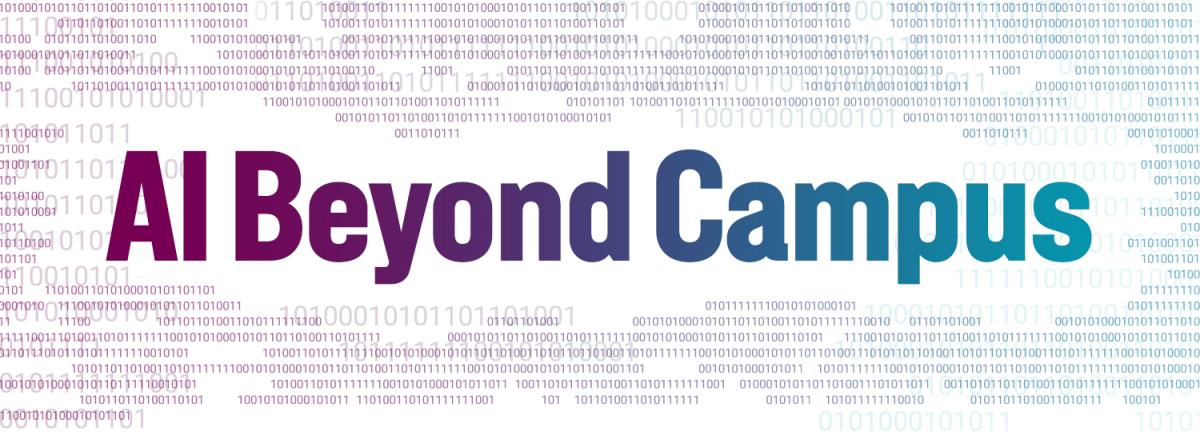
(text and background only visible when logged in)
Corporate leaders with ties to the College describe AI in their current roles, what will happen in the next five years, and how students and professionals will need to adapt.
(text and background only visible when logged in)
The College of Engineering has created new courses and reimagined others to strengthen artificial intelligence and machine learning education for undergraduates. Across 14 classes in six of our eight schools, students get the knowledge and hands-on experience their future employers will need. And our new AI Makerspace gives undergraduates unique access to the high-performance computing power necessary to use AI tools.
In the meantime, the students of yesteryear, our alumni, are already grappling with AI and its impact on their companies and the practice of engineering. They’re also wondering — and at times worrying — about what comes next.
We connected with several of them, along with other leaders with ties to the College, to talk about AI and engineering today and tomorrow, along with what young engineers will need to know to shape AI in the years to come.
The following interviews have been edited for brevity.
How is AI implemented at your company, especially as it relates to your role?
Sophia Velastegui: As the chief product officer at Aptiv, I am accountable for revenue, profit, and customers globally for self-driving products. Our autonomous product portfolio uses AI in decision-making, reviewing multiple sensor data to understand the environment and the driver, and then powering autonomous features like lane keeping and self-parking.
Ken Klaer: Comcast has used AI successfully for over 15 years, ranging from the Emmy-winning Xfinity Voice Remote and VideoAI products, to our content discovery services, smart cameras, customer care solutions, and network management tooling. Our AI efforts are coordinated by an AI Tech Center of Excellence that provides AI technology strategy, assists with the execution of AI initiatives, and provides the core platforms that enable our engineers to develop AI solutions in a safe, secure, and scalable manner with little friction.
Keith Hearon: AI is the backbone of what we do at Imidex. Our flagship product, VisiRad XR, is made up of AI models that identify lung nodules and masses (potential future lung cancers) in chest X-ray images. Imidex’s AI is 33% more accurate at finding these lesions than radiologists are in clinical practice, so it could identify 1.3 million more nodule patients in the U.S. annually.
David Neal: Georgia-Pacific Gypsum utilizes AI to address operational gaps that were traditionally resolved through manual labor. We are also leveraging AI in our order intake process, where PDFs via email were previously the primary method for a significant portion of our customer base.
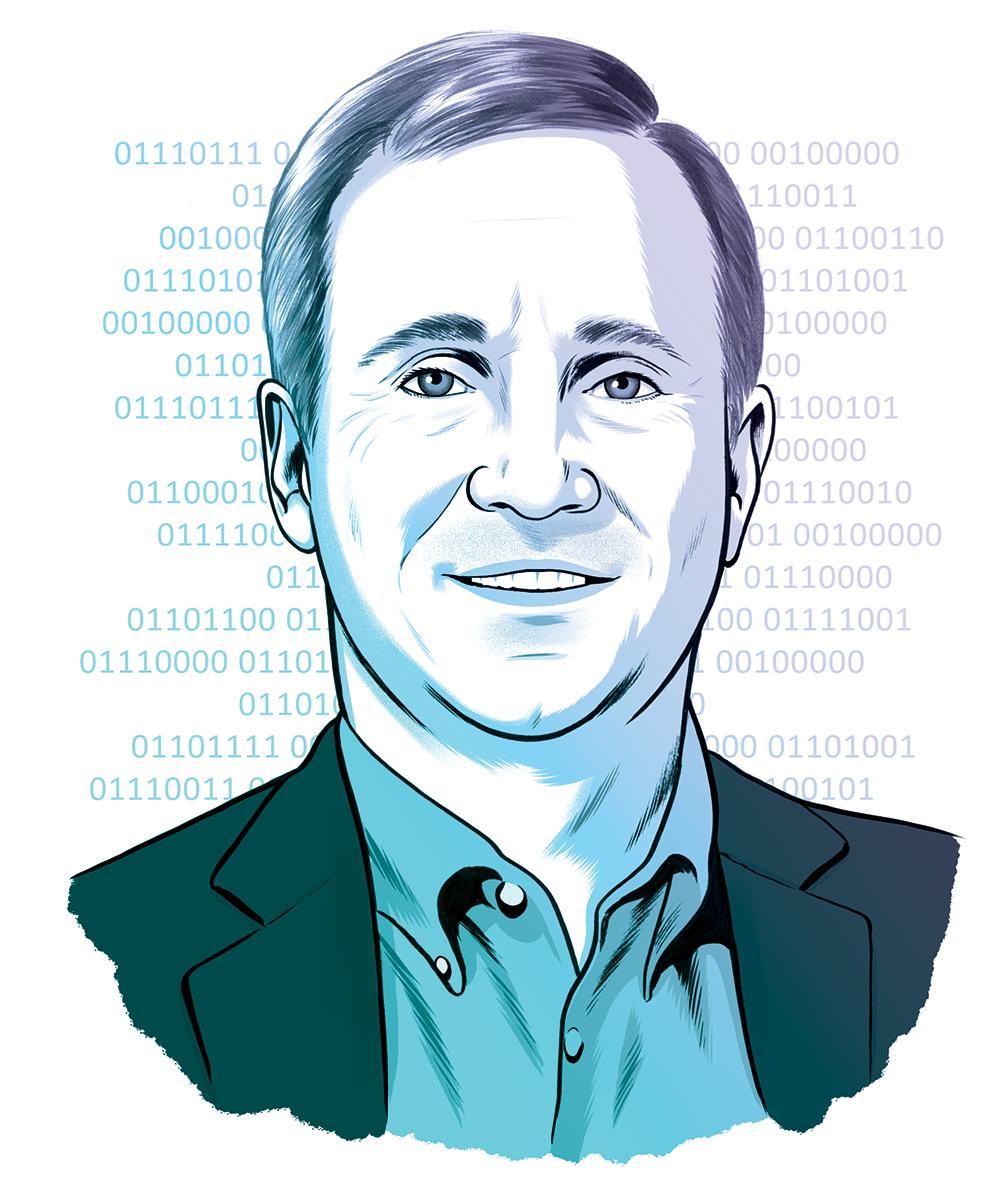
Ken Klaer, IE 1981
Executive Vice President, Comcast Cable
President, Comcast Technology Solutions
By combining existing technology with generative AI, we are streamlining data management, which may eliminate the need for manual data entry and intervention in processing purchase orders. This advancement is projected to save our commercial team approximately 15% of their time, allowing them to focus more on delivering enhanced solutions for our customers.
Rohit Verma: Crawford & Company, a insurance claims management company, leverages AI across most of our businesses to uplift operational, customer, and employee experiences with a responsible AI framework. This integration of AI with human expertise in claims management ensures efficient processing and effective decision-making. As an example, starting with the First Notice of Loss stage, AI aids in efficiently processing large claim volumes and providing accurate coverage reviews, aiding adjusters in making timely, effective coverage decisions.
(text and background only visible when logged in)
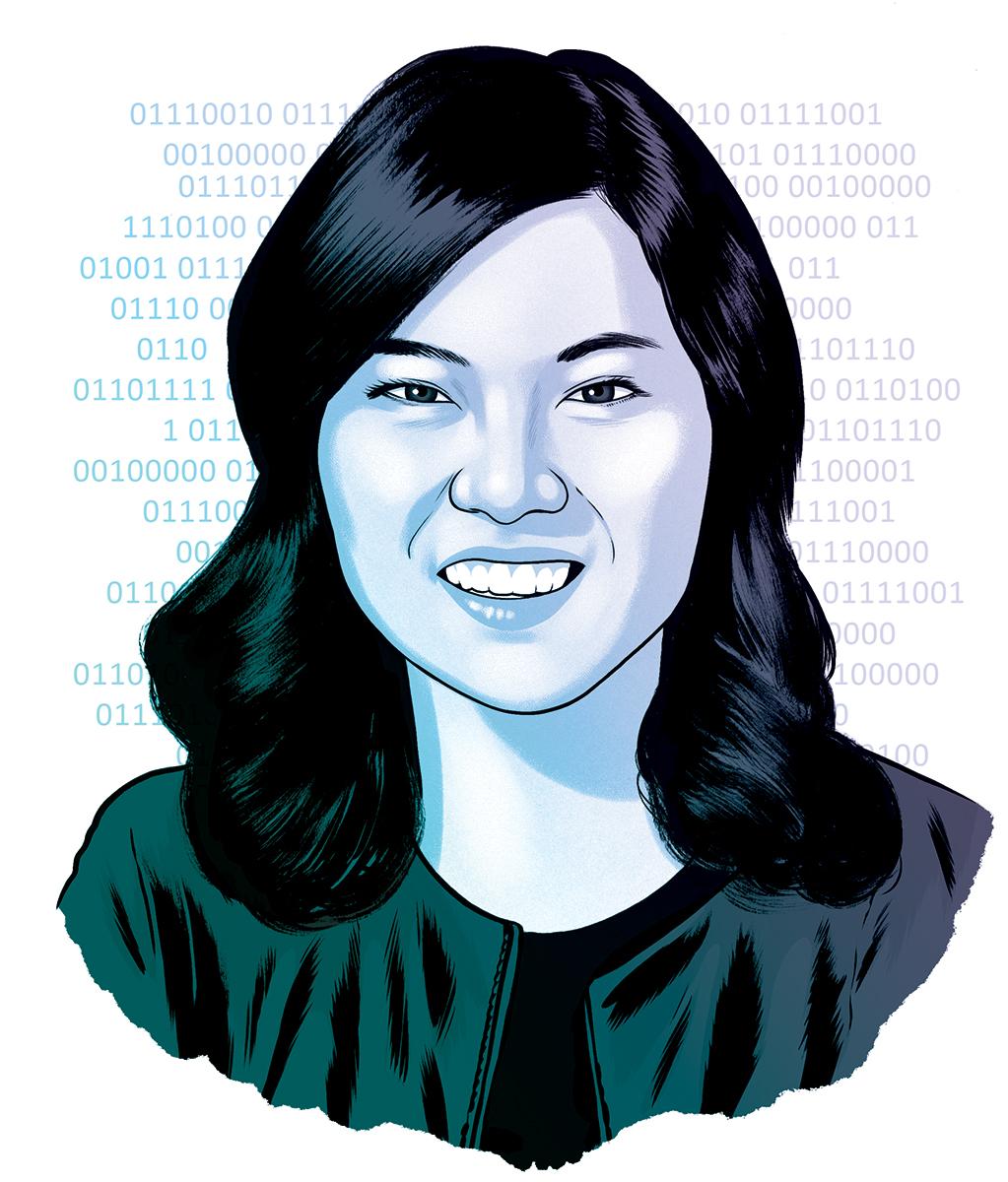
Sophia Velastegui, ME 1998
Chief Product Officer and Senior Vice President, Aptiv
What excites you about AI and its future applications?
Velastegui: Until recently, AI was limited to a small group of industries or functions, like data scientists. It has now crossed the chasm: everyone can benefit from AI in their work and everyday lives. People who love technology — but who are not technologists — can leverage this extraordinary resource. It will enable anyone to find efficiencies, be more productive, enhance creativity, and build solutions for simple and complex challenges.
Hearon: We’re just at the beginning of a long development process for establishing what can be done with the medical data that’s already out in the world. For us at Imidex, the list of potential future AI developments within lung cancer detection and care is massive and tangible. Our primary motivator is helping people more quickly in order to drive greater impact on human life.
Neal: Similar to how personal computers, smartphones, decentralized app development, and ridesharing have transformed our world, AI is poised to also revolutionize our lives.
To fully benefit from AI, we need to change our mindset and focus on asking the right questions rather than having all the answers. AI allows us to explore numerous alternatives and uncover unique connections that can bring tremendous value.
At Georgia-Pacific, a manufacturing company, we have already witnessed the positive impact of robotics and automation on the manufacturing floor. These technologies have made work safer, more fulfilling, and have improved quality and productivity. We believe that AI will bring similar advancements across all aspects of our business, transforming the way we work. Although roles and responsibilities may change, we are confident that this transformation will lead to greater fulfillment for individuals and superior business results for the company.
What concerns do you have about AI?
Verma: My biggest concern is the creation of inherent bias in AI decision models due to bias in the data being used to train them. I’m also concerned about opportunities for apprenticeship in some jobs — especially ones where the simpler work that has traditionally been used for training could be eliminated by the use of AI.
Keeping humans in the loop is essential to review AI’s outcome. At Crawford, the Digital Desk platform manages digital claims with desk adjusters overseeing AI-directed claim triage and channel segmentations. Adjusters review AI decisions using confidence scores: high scores expedite routing claims to the right channels, while low-confidence triage scores might prompt model retraining from adjuster feedback. This not only ensures precise and unbiased claim routing, but it also builds trust to drive better outcomes.
Klaer: As they say, with great power also comes great responsibility. Current AI solutions can return results that sound very convincing but do not have a grounding in truth. This can lead to problems if users adopt the output without validation.
These models are also very powerful. And since they can be programmed with natural language alone in a very flexible way, it is easy for pretty much anyone to use AI models to create outputs that could potentially be harmful to others. Examples are deep fakes that imitate others or the creation of content with the intent to manipulate opinions at a scale previously not possible.
AI applications may have inherent bias based on the training data used to build models. For instance, if you applied AI to automatically select or reject resumes in a hiring situation, it may be unfair to some people. And if no human eyes are part of the interaction, nobody may ever realize a biased situation.
(text and background only visible when logged in)
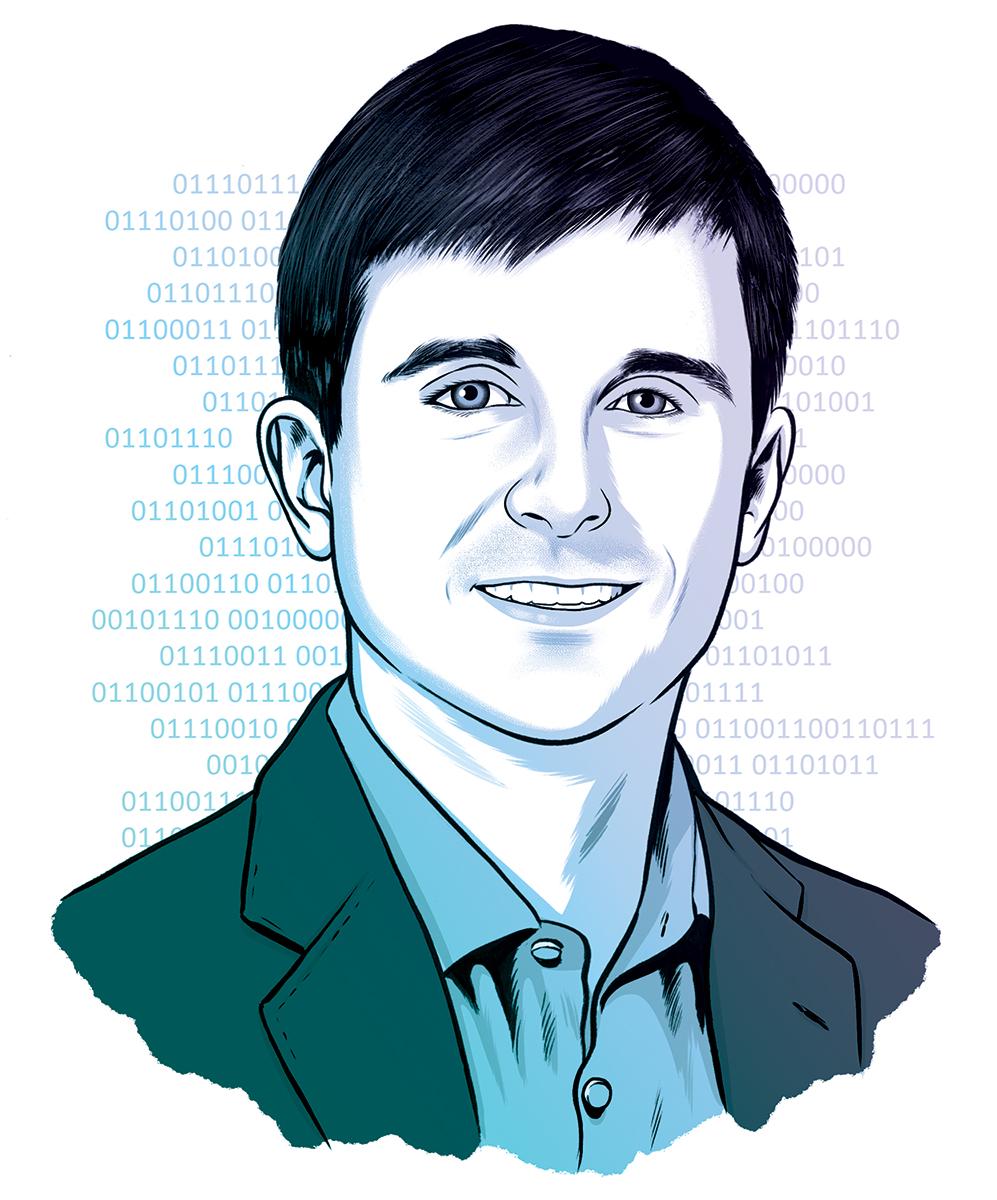
Keith Hearon, MSE 2009
Chairman of the Board, Imidex
Hearon: The quality of AI, especially in healthcare, is critical. When there’s a field as promising as AI, you inevitably get a big rush of competitors, and ensuring that only the best products make it to market is key.
Algorithms are only as good as the data that goes into them, so the source data must be relevant, plentiful, and expertly curated. Additionally, ensuring the right type of oversight is key. At Imidex, oversight by the U.S. Food and Drug Administration has enabled us to legally market AI that impacts patient care in the U.S. While it was a challenging process to achieve 501(k) clearance from the FDA, it also affirmed that we are generating the best outputs for our provider customers and their patients.
Velastegui: While I see so many benefits to AI taking center stage in our lives, we should all stay vigilant about the potential for misuse. I’m watching for privacy violations from data collection, exposure of personal information, and surveillance. Like you’ve probably seen in the news, I’m also concerned about bad actors creating malicious AI systems that spread misinformation.
AI is developing faster than regulations can keep up in some cases, so staying mindful of the strict regulatory environment will be critical.
(text and background only visible when logged in)
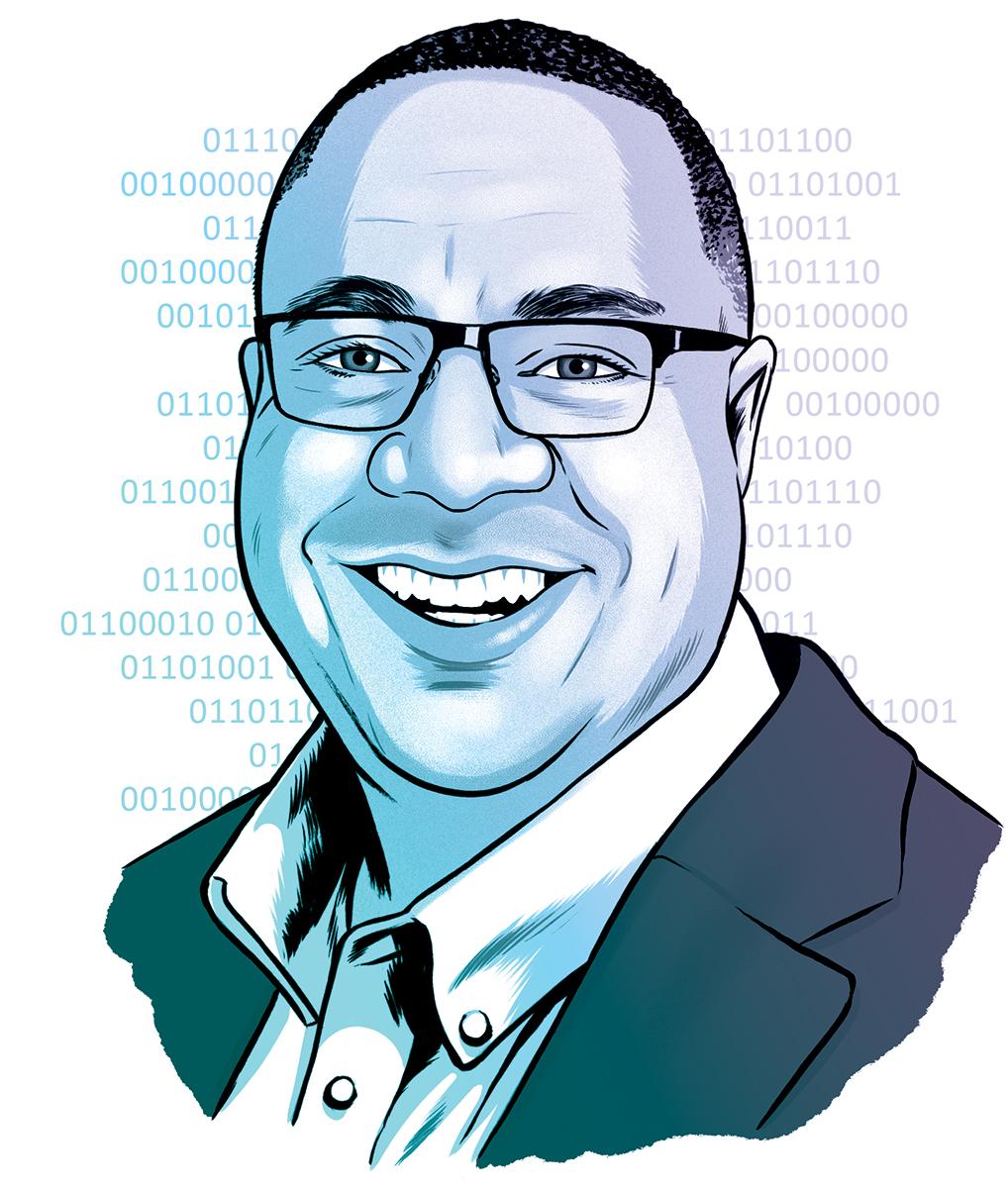
David Neal
President, Georgia-Pacific Gypsum, LLC
How will AI change the practice of engineering and how will students and professionals need to adapt?
Neal: As AI continues to advance, the engineering mindset and engineers’ problem-solving abilities will play a crucial role in shaping business outcomes. AI has the potential to greatly enhance operations, from design and development to production and maintenance.
To effectively incorporate AI, students and professionals should engage in strategic conversations, prioritize diverse design, and use AI to predict formulations or designs before prototyping. This technology will extend beyond engineering into various fields, offering complex solutions.
Embracing these practices will provide numerous answers to diverse problems, leading to more efficient, innovative, and competitive results. By being at the forefront of AI integration, students and engineers can drive the future of business.
Hearon: Incorporating AI as a part of the engineering skillset will become a standard, basic requirement, just as search engines and internet research are today. This is an area where it behooves students and professionals to educate themselves on how to use increasingly available AI technology to stay current and advance their own knowledge in their chosen field.
Verma: Engineers must adapt to AI by mastering AI-driven design and data interpretation, particularly in developing GPT platforms on their focused domain to enhance innovation and value. The synergy of AI and human expertise promises more efficient, effective data analysis, leading to accurate models and well-informed decisions, propelling data professions to new heights.
At the same time, companies need to balance efficiency and innovation with job security in the AI-driven workplace. This involves fostering a collaborative culture with transparent AI roles, providing more awareness and training, and promoting continuous learning for skill enhancement.
Velastegui: AI will bring software engineering and data science to all aspects of engineering. Students and professionals will need to master how to leverage AI systems versus traditional methods in order to maximize innovation and effectiveness.
AI is no longer limited to the technology stack of the product. It can be leveraged across all business functions. More AI knowledgeable students will be needed. Now is the time to get up to speed on AI regardless of your degree — it’s about to be as fundamental as the internet and the computer.
What do you foresee in the next 5 years of AI?
Klaer: We are still very early in the era of AI, so the first places where we’ll see a lot of change is from areas where we are today. I believe that AI solutions will become more prevalent and be built into most of our phones as personal assistants. We will likely also see more AI-to-AI conversations where our personal AI assistants will collaborate with other assistants to accomplish the desired outcomes in restricted domains without us in the loop.
In addition, science fiction has long been a predictor of what may be imagined for the future. AI may allow us to communicate more directly and naturally with computers, such as in “Star Trek,” “2001: A Space Odyssey,” and “Knight Rider.” Home robots such as the Roomba may take on more intricate tasks and act as a live-in maid or cook, such as in “The Jetsons.”
Verma: There is only superficial understanding of AI right now, so the magnitude of its impact is underestimated by some and overestimated by others. I consider it similar to the advent of other technologies from the past, where people overestimated its impact in two years and underestimated the impact in five years.
Much like we’ve seen in mobile technology, I expect that there will be more harmonization in understanding the true potential of AI and new use cases will emerge. When they do, the emphasis will be on problem-solving with the right models, underlining the essential role of the human-in-the-loop approach to ensure the correct framework is built.
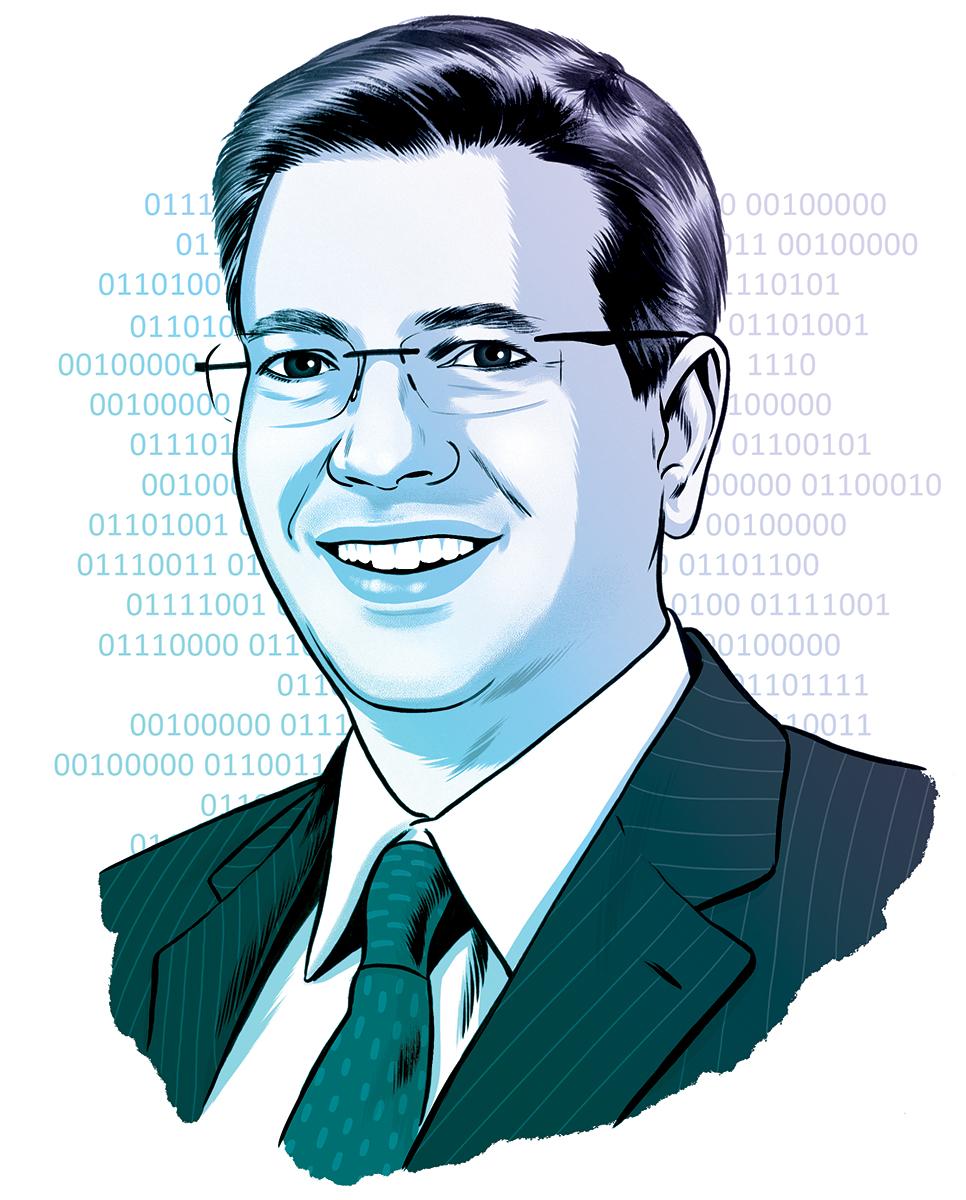
Rohit Verma
CEO, Crawford & Company
Neal: The growth of AI-generated content is remarkable. Envisioning a future where transcribing, translating, and summarizing using Large Language Models is exciting.
With AI seamlessly integrated into our everyday apps, language barriers will virtually disappear, fostering better communication and understanding. We will witness the widespread adoption of early technologies through user-friendly applications on our phones and other platforms. The cumulative knowledge derived from vast data sets will empower newer AI models to minimize errors.
This will be particularly transformative in humanities and the sciences, where AI reasoning will enable individuals with varying abilities to harness advanced math, finance, and statistics. The possibilities for advancement in every field of study are truly unimaginable and hold great promise for our future.
Velastegui: We’re actually starting to see the future of AI right now! The next generation of generative AI is Multimodal AI, which can process multiple data inputs and types to produce more accurate and sophisticated outputs. For example, how can healthcare be further enhanced to truly provide personalized patient care and research? Healthcare recommendations rely almost exclusively on averages. But we are all unique people.
Imagine the healthcare of the future where a diagnosis or treatment plan takes into account the biometric signals from your Apple Watch throughout the day, and not just when you go to the doctor. Your health history, your environment, and who you are as a person all will be instantly pieced together.
That will be a life-changing moment for all of us.
Klaer: The current state-of-the-art AI approaches such as auto-regressive text prediction models (predicting the next letters/words from the current text and context) are limited in many ways. We will still have to do much more research in this area to fulfill the potential of AI and do it in a safe and responsible manner. I can’t wait to see what the Georgia Tech College of Engineering students and faculty will contribute to this quest.
(text and background only visible when logged in)

(text and background only visible when logged in)
Related Stories
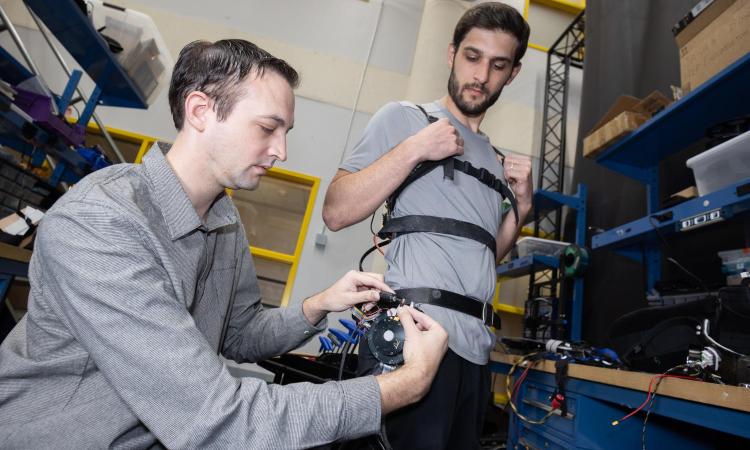
AI for a Better World
Georgia Tech engineers are refining AI tools and deploying them to help individuals, cities, and everything in between.
(text and background only visible when logged in)
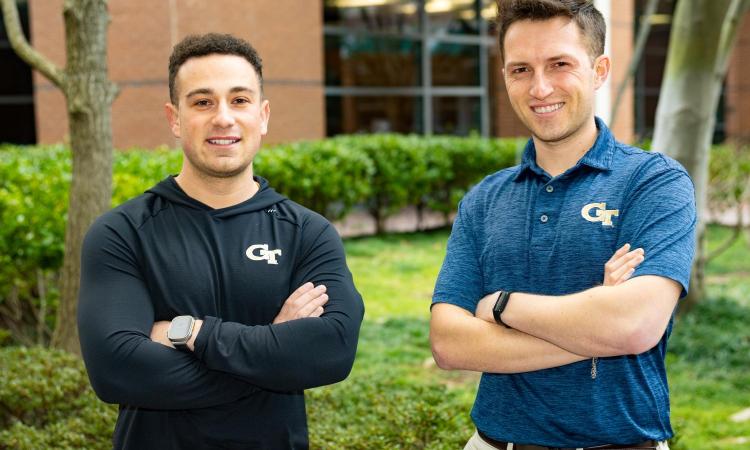
Managing the Ups and Downs
With GlucoSense, alumni are creating a single tool to help diabetes patients wrangle data to better manage their health.

What IS Artificial Intelligence?
Engineers working in machine learning and AI offer a crash course in the basic concepts and buzzwords that have moved from the lab to everyday life.
(text and background only visible when logged in)
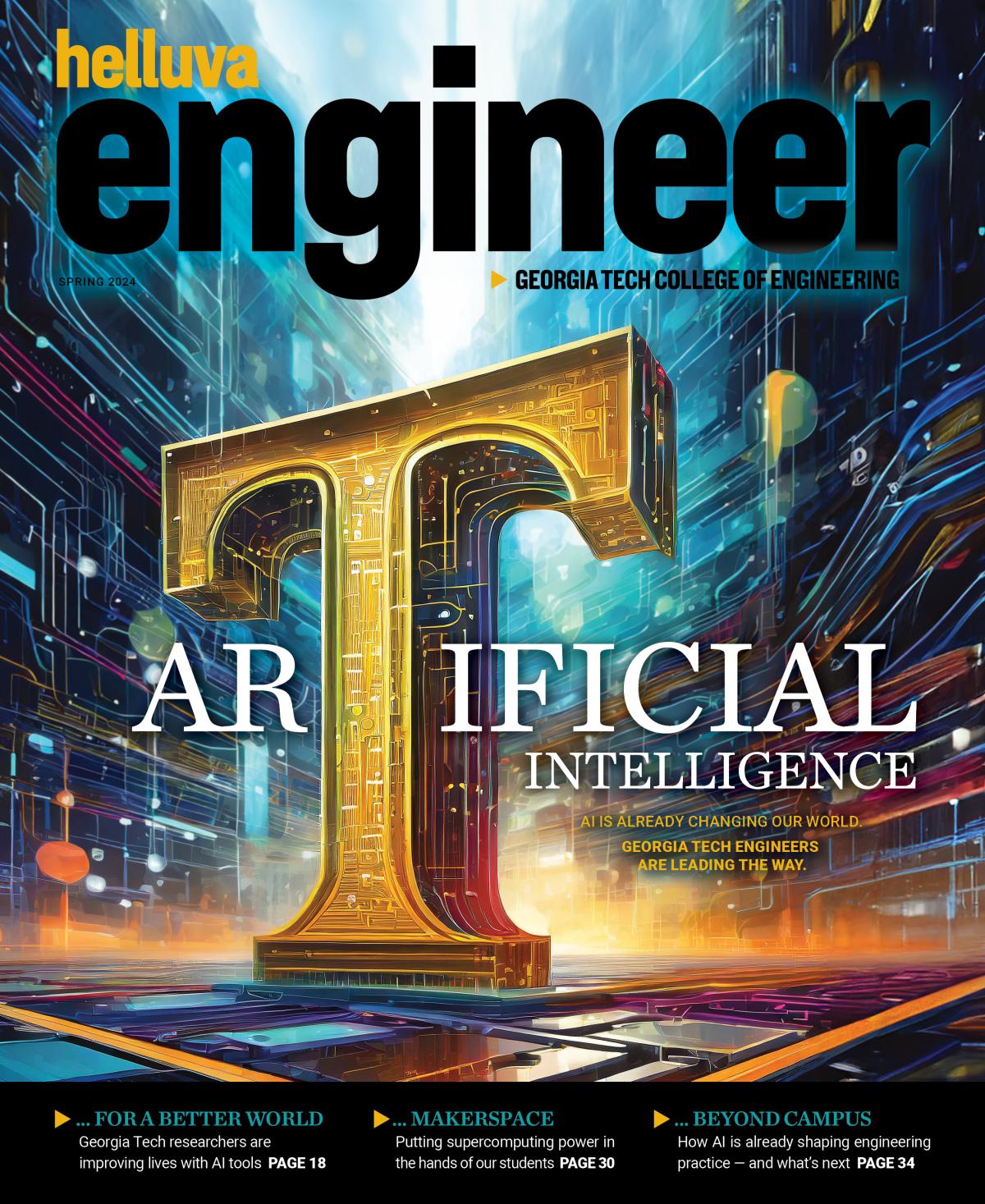
Helluva Engineer
This story originally appeared in the Spring 2024 issue of Helluva Engineer magazine.
Georgia Tech engineers are using artificial intelligence to make roads and rivers safer, restore or boost human function, and enhance the practice of engineering. We’re building the technology and infrastructure to power tomorrow’s AI tools. And we’re giving our students the AI courses and supercomputing power they need to be ready. AI is changing our world, and Georgia Tech engineers are leading the way.